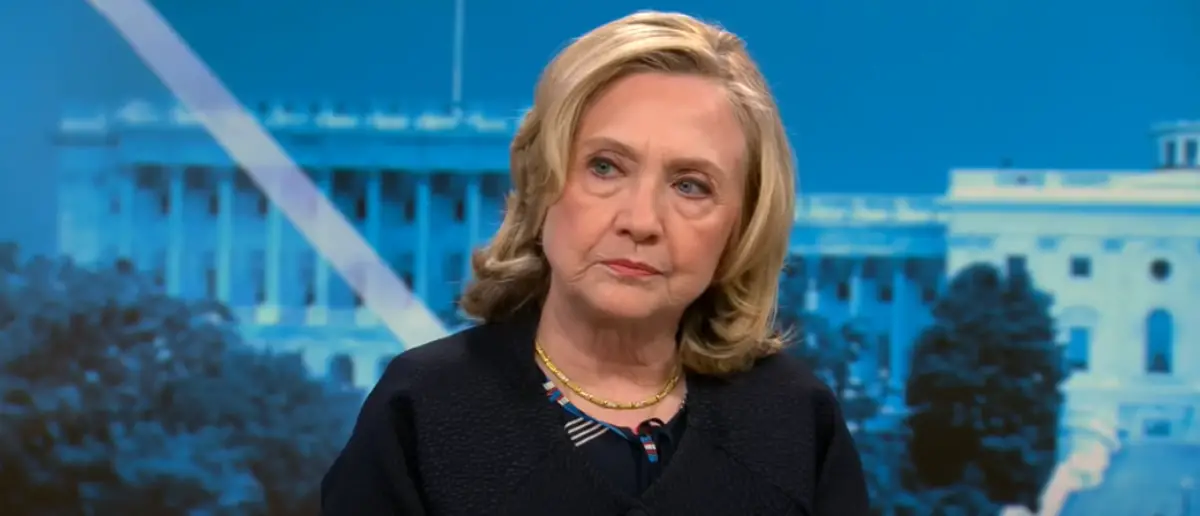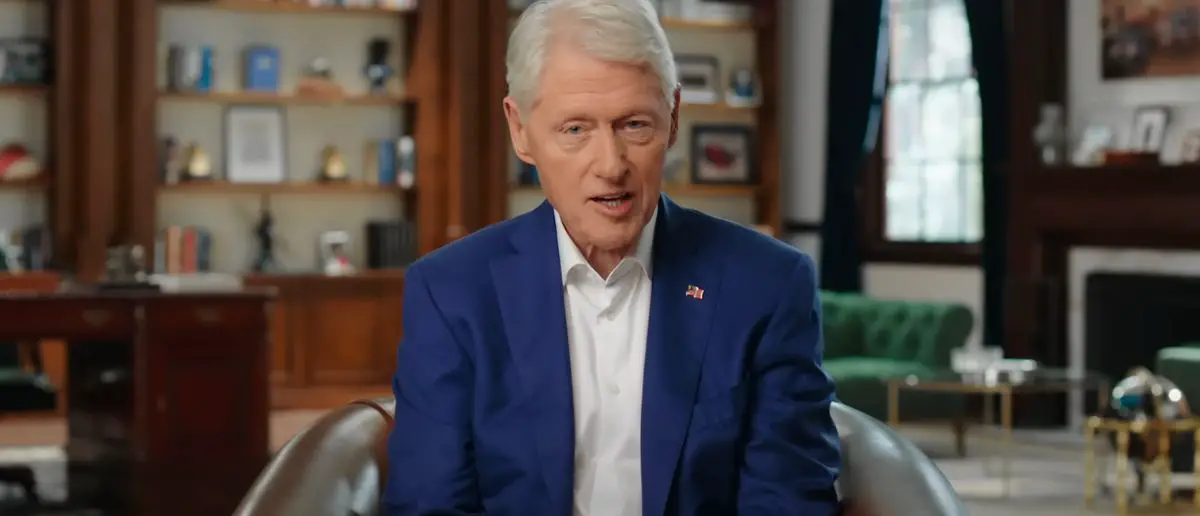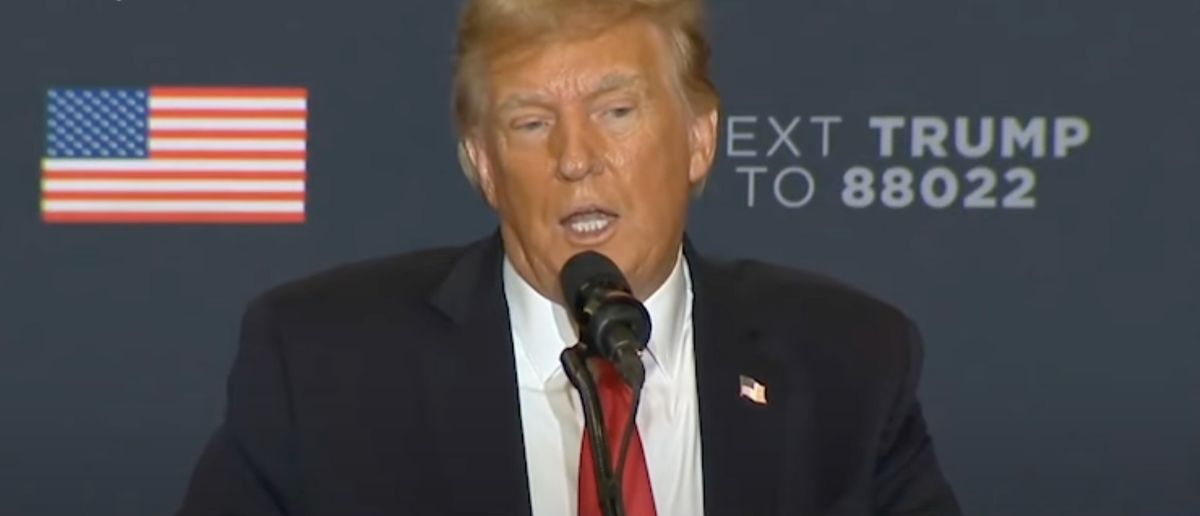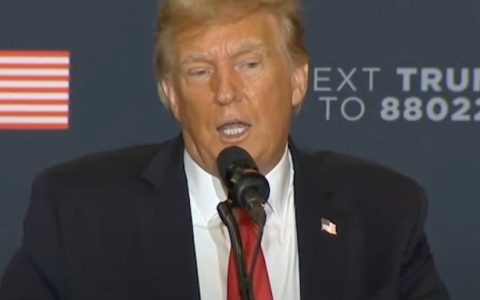
Failed Presidential candidate Hillary Clinton thought she was in the clear. She’s not getting away so easily.
Because Hillary Clinton’s been horrified by the truth that’s finally come out about her.
House Intelligence Committee Chairman Rick Crawford, R-Ark., has confirmed that Russia collected compromising information on Hillary Clinton during the 2016 election, including details about her use of tranquilizers, mood swings, and emotional outbursts. However, Russia chose not to release this information, reportedly intending to use it as leverage if Clinton won the presidency.
“The fact is, there was never an association with Russia” and Donald Trump, Crawford said Wednesday on the “Just the News, No Noise” TV show. “What this document shows is that, if anything, they had a preference for a President Hillary Clinton, because they had information on her that they could exploit after the fact.
“They were counting on a President Hillary Clinton, and then they would have her over a barrel because of the information that they had on her,” he added. A recently declassified House Intelligence Committee report, made public on Thursday by Director of National Intelligence Tulsi Gabbard after being withheld by the CIA for years, claims the December 2016 Intelligence Community Assessment misrepresented evidence.
The report suggests that Russian President Vladimir Putin may have anticipated or preferred a Clinton victory in 2016. “The judgment that Putin developed a ‘clear preference’ for candidate Trump and ‘aspired to help his chances of victory’ did not adhere to the tenets of the ICD (Intelligence Community Directive) analytical standards,” the report found.
“The ICA ignored and selectively quoted reliable intelligence reports that challenged and in some cases undermined judgments that Putin sought to elect Trump,” the report added. “The ICA failed to consider plausible alternative explanations of Putin’s intentions indicated by reliable intelligence and observed Russian actions.”
Crawford, speaking on the Just the News, No Noise TV show, indicated that additional details would emerge soon. “There’s more information coming,” he said. “What we have in this document basically shows that, because of a DNC hack, they had information about her personally [such as] her mental state, her health conditions and so on…the use of tranquilizers daily, her mood swings, fits of rage…things of this nature.”
During the 2016 campaign, Clinton faced public scrutiny over her health after a pneumonia diagnosis in September and other reported health concerns. “We saw that on display when she was at a campaign stop at Ground Zero late in the campaign where she could barely move herself,” Crawford said. “She was being held up and helped into a van coming away from that particular event, so we saw the evidence of it.”
Crawford emphasized that the report indicates Russia viewed Clinton as a more manipulable target, supporting the notion that they preferred her presidency to exploit her vulnerabilities.
The report’s release coincides with FBI Director Kash Patel’s announcement of a criminal conspiracy investigation, alleging misuse of intelligence and federal law enforcement from 2016 to 2024, with criminal referrals sent to the Justice Department under Pam Bondi.
Crawford highlighted the report as evidence of a “deep state” wielding unchecked power. “I think it was on January 6, 2017, that’s when things really started to accelerate with regard to what the deep state was engaged in,” he said. “I say deep state because, before I got on the Intelligence Committee, I was not inclined to entertain the notion of this deep state until I saw it for myself.”
“I can tell you that there are people who think that they run the government, and they do it without any accountability and without any election,” Crawford later said. “And they think that they’re the ones that run the show and that just can’t happen.”
History of Scandals Involving Hillary Clinton
Hillary Clinton’s political career, spanning decades as First Lady, Senator, Secretary of State, and presidential candidate, has been marked by controversies that have fueled public debate and scrutiny. One of the earliest significant scandals was the Whitewater controversy in the 1990s, when Clinton and her husband, then-President Bill Clinton, were investigated for their involvement in a failed Arkansas real estate venture. The investigation, led by independent counsel Kenneth Starr, expanded into other allegations, including the firing of White House travel office staff and culminated in Bill Clinton’s impeachment over the Monica Lewinsky affair.
During her tenure as Secretary of State from 2009 to 2013, Clinton faced criticism over the 2012 Benghazi attack, where four Americans, including Ambassador Christopher Stevens, were killed at a U.S. diplomatic compound in Libya. Congressional investigations questioned Clinton’s handling of security requests and the administration’s response, with critics alleging negligence. Although multiple investigations, including a 2016 House Select Committee report, found no direct evidence of misconduct by Clinton, the controversy persisted as a political lightning rod during her 2016 presidential campaign.
The most prominent scandal of Clinton’s 2016 campaign was the private email server controversy. As Secretary of State, Clinton used a personal email server for official communications, raising concerns about security and transparency. The FBI investigated whether classified information was mishandled, concluding in July 2016 that no criminal charges were warranted, though then-FBI Director James Comey called Clinton’s actions “extremely careless.” The issue reemerged weeks before the election when Comey announced a review of newly discovered emails, amplifying public and political criticism.
Clinton’s ties to the Clinton Foundation also sparked controversy. Critics alleged that the foundation, a global charitable organization, was used to facilitate pay-to-play schemes, with donors gaining access to Clinton during her time as Secretary of State. A 2015 book, Clinton Cash by Peter Schweizer, fueled these claims, though no definitive evidence of illegal activity was found. Investigations by the FBI and other entities concluded without charges, but the allegations reinforced perceptions of impropriety.
The 2016 Democratic National Committee (DNC) email hack, attributed to Russian actors, further complicated Clinton’s campaign. Leaked emails suggested favoritism toward Clinton over Bernie Sanders during the Democratic primaries, prompting accusations of bias within the DNC. The scandal deepened distrust among voters and fueled narratives of corruption, even as Clinton herself was not directly implicated in the hack.
Post-2016, Clinton has faced ongoing scrutiny over her health and mental state, as highlighted in the recently declassified House Intelligence Committee report. Allegations of Russian intelligence gathering compromising personal information, including health-related details, have added a new dimension to her controversies, raising questions about foreign influence and national security.





